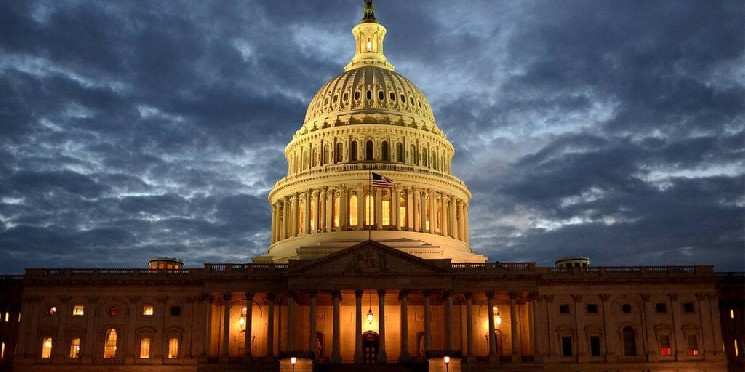After several days of high-stakes crypto drama on Capitol Hill, a clique of holdout Senate Democrats appears to be nearing a deal to support stablecoin legislation—though the matter is far from settled.
On Wednesday, a small group of pro-crypto Democratic senators including Ruben Gallego (D-AZ), Mark Warner (D-VA), and Angela Alsobrooks (D-MD) met with Republican counterparts to discuss terms that would win back their support of the GENIUS Act, which would establish a framework for offering stablecoins in the United States, sources with knowledge of the meeting told Decrypt.
The group had supported the bill until Saturday. That night, nine Senate Democrats, including Gallero, Warner, and Alsobrooks—who cosponsored the bill—issued a statement withdrawing their support for it, on the grounds that its latest draft did not meet their standards.
The abrupt move appeared to be triggered by a perfect storm of factors, sources familiar with the matter told Decrypt. Among them: sourness among Democrats that they were not looped in on the language of the latest draft of the bill, and escalating anger in party ranks at the extent of President Donald Trump’s perceived crypto-related conflicts of interest.
President Trump is currently involved in multiple cryptocurrency ventures, including a meme coin which trades under the ticker TRUMP currently valued at over $10 billion, and a DeFi project—the sort that allows for the trading and lending of crypto assets without third-party intermediaries—known as World Liberty Financial, which raised more than $550 million in a public token sale to accredited investors.
In response to the pullback from Democratic lawmakers, Senate Republicans, caught off-guard, doubled down. On Tuesday, Senate Majority John Thune (R-SD) filed cloture on the GENIUS Act, setting a vote for Thursday that would end discussion of the bill and move it to final consideration.
Thune said over the weekend that if Democrats failed to support the bill, they would prove that “digital asset and crypto legislation remains a solely Republican issue.”
Stablecoins are digital assets that are generally pegged to the U.S. dollar and allow for their users to enter and exit crypto trades, and to send remittances overseas, without the need to access dollars directly. These assets underpin the crypto economy and are a crucial part of how the market currently operates.
There is a strong expectation among crypto market observers that once stablecoin legislation is passed in the House and Senate, and eventually signed by President Trump, Wall Street and banking giants will at last feel comfortable enough to step into the market, and potentially bring billions if not trillions of new dollars along with them. But legislation has to get over the finish line first before these ambitions are realized.
Tensions over crypto legislation reached a peak on Tuesday. That morning, House Democrats staged a walkout of a digital assets-related hearing, citing “Trump’s crypto corruption.” Privately, crypto policy leaders fretted that political calculus on Capitol Hill had shifted out of their favor. Should Republicans push a cloture vote on the GENIUS Act and the motion not receive 60 votes, crypto’s legislative momentum could suffer a fatal blow, multiple crypto-focused D.C. insiders told Decrypt.
But this afternoon, something of a detente appears to have been reached between both parties—at least in principle. Holdouts Gallego, Warner, and Alsobrooks met for nearly four hours with Thune, as well as pro-crypto Republican senators Bill Hagerty (R-TN) and Cynthia Lummis (R-WY). Sen. Kirsten Gillibrand (D-NY), who has not threatened to withhold her vote for the GENIUS Act, was also present, a source familiar with the meeting told Decrypt.
By the session’s end, “progress was made” between both camps, according to a readout of the meeting seen by Decrypt.
Now, Senate staffers are racing to turn verbal agreements made between both groups into bill language that all senators involved would accept. But it’s unclear if relationships between the Democratic and Republican staffers involved are strong enough to get the bill over the finish line by tomorrow’s cloture vote, one source familiar with the matter told Decrypt.
Democrats are pushing to delay the vote until next Tuesday, another source with knowledge of the discussions told Decrypt, though Republicans may not let that happen. All the while, there exists a tense yet unspoken dynamic to the standoff: Should Republicans bring the bill to a vote—and it fail to reach 60 votes because of a lack of Democratic support—there is an expectation that crypto super PACs may drift away from a bipartisan strategy, and instead strongly favor the GOP, in the 2026 midterms.
Representatives for the senators present at Wednesday’s meeting did not immediately respond to Decrypt’s requests for comment on this story.
It also remains unclear what concessions Republicans gave Democrats to make them comfortable with supporting the GENIUS Act going forward. Gallego’s Saturday statement referenced “anti-money laundering, foreign issuers, [and] national security” as areas of needed improvement in the bill.
Crypto lobbyists have taken that language as an indication that Democrats may want stronger provisions to prevent stablecoin giant Tether’s USDT token from trading on secondary markets, and language targeting DeFi projects perceived to be a threat to America’s foreign policy.
But as of now, industry players have no idea what the bill’s new language could look like. They may not know before the legislation sees a vote on the Senate floor tomorrow.
“I am having a small heart attack,” one crypto policy leader told Decrypt.

